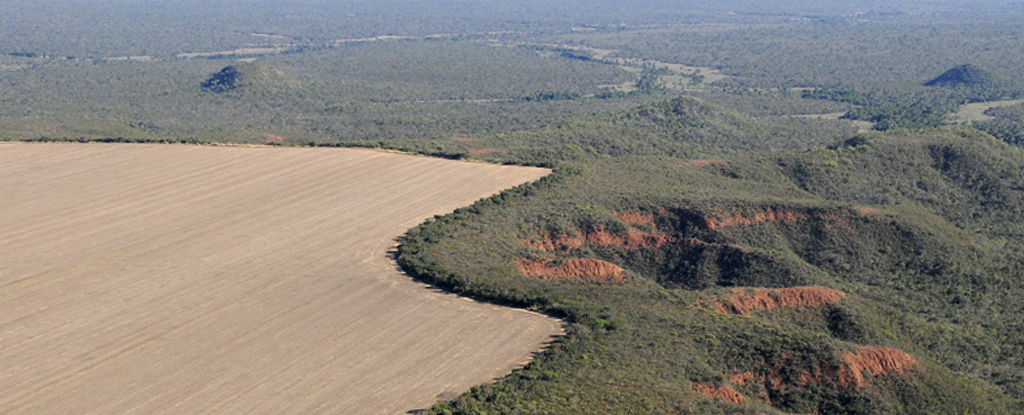
The loss of wolves to the region has been largely overlooked by humans, even in our scientific research, but the impact of their absence is written loudly in the missing trees.

Up to 50 percent of rangelands are now degraded, a new report from the United Nations (UN) finds. Alongside climate change, many other problems are contributing to rangeland demise, mostly stemming from poor land management.

New study reveals that as insect populations in Europe fall so some plants are turning to self-pollination.

Earth's amphibians are being pushed closer to the brink due to habitat destruction, disease and climate change, with 41% of species now threatened with extinction.

A new study has highlighted the possibility of major harvest failures caused by climate change in multiple global breadbaskets as the United Nations warned of a “dystopian future” without immediate action.

In 2021, a global assessment found a shocking one-third of all tree species are currently teetering on the edge of existence. The extinction of a single species can cause a massive domino effect.

On top of intensifying algal blooms and depleting oxygen, a new study reveals Earth's bodies of freshwater are also evaporating at a greater rate than we realized.

Tropical forests are guardians against runaway climate change, but their ability to remove CO2 from the atmosphere is wearing down. Between 2001 and 2019 the Brazilian Amazon acted as a net emitter of carbon, study found.

A new study has found that deforestation in the Amazon has destroyed eight per cent of the world’s largest rainforest, between 2000 and 2018. The Amazon is often referred to as the ‘lungs of the planet’ .

Since the mid-1990s, coral in the Great Barrier Reef has declined by more than 50%. The research spanned the entire 2,300 km of the Great Barrier Reef and found a disturbing loss at pretty much every level.

There are 20 mil hectares of planted oil palm in the world, and 12.5 mil hectares of coconut. But coconut palms are mostly grown on tropical islands, many of which possess species found nowhere else on Earth.

An emergency was declared after 20,000 tonnes of diesel leaked into a river when a tank at a power plant near the city of Norilsk, Russia, collapsed at the end of May. The spill contaminated a 350 sq km area.

According to a new study, up to half of the world’s sandy beaches are at risk of disappearing by the end of this century if no action is taken to limit greenhouse gas emissions.

When researchers surveyed historical records for evidence of comparable wildfire seasons — not just in Australia, but across the globe. They found nothing approaching the scope of Australia’s devastation.

Scientists project 70 to 90 percent of coral reefs will disappear over the next 20 years as a result of climate change and pollution. What's more, rising sea surface temperatures and acidic waters could eliminate nearly all existing coral reef habitats by 2100.